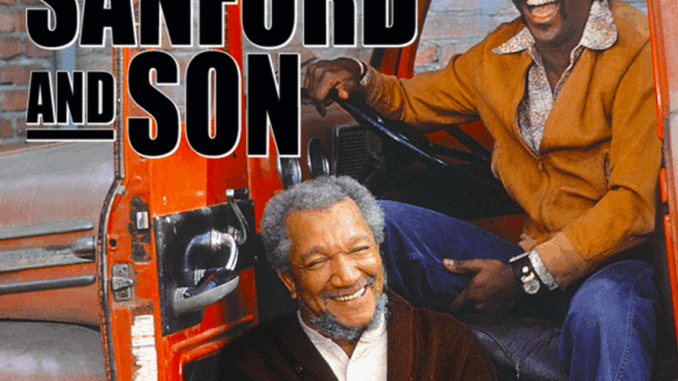
At first glance, Sanford and Son was a simple sitcom about a cranky junk dealer and his patient son. But beneath the jokes, the show was doing something quietly revolutionary. Premiering in 1972, it was one of the first sitcoms on American television to center a working-class Black family — and it didn’t tiptoe around issues of race, poverty, or pride.
Fred Sanford, played with fire and flair by Redd Foxx, was more than a loudmouth curmudgeon. He was a representation of an older generation — one shaped by segregation, economic struggle, and resilience. Lamont, his son, represented a younger Black America trying to move forward, to dream bigger, and to escape the cycle.
What made Sanford and Son so effective wasn’t just its humor, but how it wove real-life issues into every episode. Fred’s prejudices and get-rich-quick schemes weren’t just comedic devices — they were reflections of survival instincts honed over decades of being marginalized.
In episodes like “Fred Sanford, Legal Eagle,” where Fred decides to represent himself in court, or “Lamont as Othello,” where he joins a Shakespearean play and confronts racist assumptions, the show presented real social commentary with laughter as the delivery system. It didn’t preach — it poked, prodded, and let audiences come to their own conclusions.
In an era when Black voices were often sidelined on television, Sanford and Son stood tall. And even now, its reflections on race and class feel startlingly relevant.